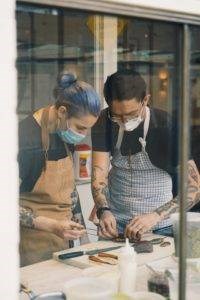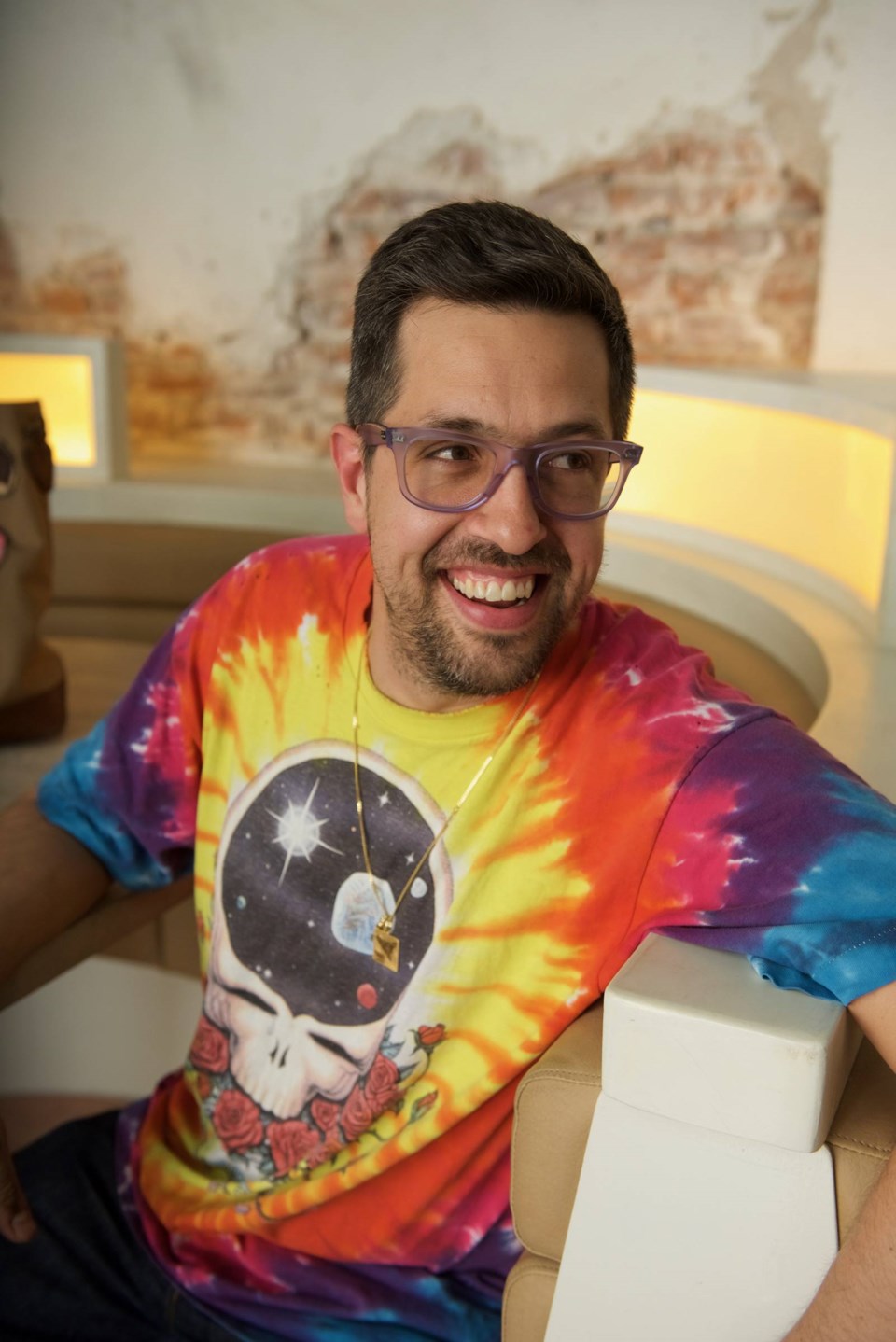As concerns about the environment rise, chefs like Brooklyn-based Justin Bazdarich are doing their part to reduce the food industry's carbon footprint.
Bazdarich is the owner of Speedy Romeo in Clinton Hill and the Michelin-starred Mexican restaurant Oxomoco in Greenpoint. Recently, he opened up Xilonen, a restaurant where the menu is made up of 90% vegan meals.
Bazdarich has always cooked and eaten meat, but recently he has been actively working to remove meat from his menus and focus on plant-based dishes. It started when his wife developed an aversion to meat when she was pregnant. After his son was born, Bazdarich decided meat was off the menu altogether.

"It became an ethical thing for me, it just didn't feel right," Bazdarich said.
"It all started with just eating more veggies at home, but then I realized that it's not easy to eat vegan when dining out. You have to be strict and really plan, so I created a menu metric that was like 25% vegan and 25% vegetarian. I figured if I could use this metric, then I can get other chefs involved and reduce the amount of meat on the menu."
But reducing meat is just the first step in Bazdarich's quest towards sustainability. Early on in the pandemic, when restaurants were relying on takeout, Bazdarich noticed that the restaurant used a lot of plastic and non-recyclable containers. After taking a sustainability course with the University of Arizona—where he is currently a student—his restaurants now only use compostable take-out containers.

"One thing I've learned from those courses is that sustainability is all give and take," Bazdarich said. "Yeah, 90% of our menu items are vegan, but avocados aren't the best. They're cutting down forests in Mexico to grow avocados. This whole process has just been so humbling because I didn't know a lot about this, but we're all doing our best."
He added there was so much work to do that it couldn't be done perfectly, so the most important thing was patience and perseverance.
With more people dining at home, Bazbarich wants to bring his plant-based dishes to homes in Brooklyn and has been working on creating packaged foods.
"Before COVID, we never did delivery. We are always too busy, but now it's part of our daily life," Bazdarich said, adding nowadays everything had to be accessible to take home which had changed the way he created dishes.
A change in awareness, attitudes and habits, paired with the inevitable change in the restaurant industry led Bazdarich to think the future of food was plant-forward.
"From what I've learned in school, and my own experience, the best way is to declare a plant-rich menu. Adopting a metric menu can really help pull back on meat consumption, and essentially help the planet."




